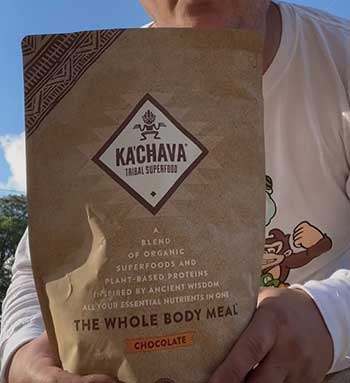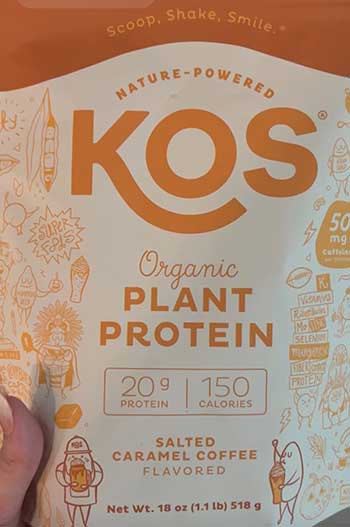Plant-based protein drinks like Ka’chava and Kos provide an easy way to get nutrition on the go. But how do you decide between these two popular brands?
This in-depth guide compares their ingredients, taste, cost, and more to determine the better option.
A Brief Comparison Table
| Feature | Ka’chava | Kos |
| Protein Sources | Pea, pumpkin, chia | Soy isolates |
| Protein Amount | 16g per bottle | 20g per bottle |
| Ingredients | Organic certified | Partially organic |
| Taste | Creamy, rich | Lighter, thinner |
| Dietary Lifestyles | Paleo, Keto friendly | Not Paleo friendly |
| Price | Expensive $5-$6 per bottle | More affordable $3-$4 per bottle |
| Packaging | Eco-friendly Tetra Pak | Conventional plastic |
Overview Of Ka’chava And Kos

Founded in 2019, Ka’chava offers a premium organic protein drink featuring pea, pumpkin seed and chia proteins plus a wide array of superfoods. Their trademarked formula aims to provide complete daily nutrition in a bottle.
Kos launched in 2009 as one of the early entrants into the plant-based protein space. Their flagship drink has organic soy protein plus vitamins, minerals and antioxidants for a vegan protein boost.
Both Ka’chava and Kos use only plant-based proteins, making their drinks vegetarian/vegan friendly. They come in ready-to-drink bottles as well as powder formulas to mix yourself.
Ka’chava has a thicker, meal-replacement style consistency while Kos has a lighter protein drink texture. Kachava specializes in organic ingredients while Kos focuses on soy protein potency.
Also Read: Comparison Between Tangy Tangerine 2.0 and 2.5
Comparison Between Ka’chava And Kos
Protein Sources and Amounts
The main protein sources in Ka’chava are:
- Pea protein
- Pumpkin seed protein
- Chia protein
Combined they provide 16g total protein per bottle.
Kos contains:
- Soy protein isolates
- Soy protein concentrates
Equaling 20g protein per bottle.
For building and maintaining muscle, experts recommend consuming 0.36g – 0.45g of protein per pound of body weight. So Kos provides slightly higher protein content, but both deliver an ample protein amount in one drink.
Ka’chava has the benefit of protein blending for more completeness. Kos relies solely on soy. Soy is considered a complete protein itself, so both brands give balanced amino acid profiles.
Ingredient Quality and Sourcing

When it comes to ingredients, Ka’chava stands out for their rigorous quality standards. Their proteins and all ingredients are certified USDA Organic. Produce comes from organic American farms whenever possible.
Kos does use some organic ingredients, but not to the same degree as Ka’chava. Their soy protein isolates are non-GMO but not USDA Organic certified. Some nutrients are synthetic rather than food-sourced.
For supplement-like additions, Ka’chava includes organic superfoods like spirulina, chlorella and acai. Kos sticks to basic vitamins and minerals.
If purity and quality is a priority, Ka’chava is the superior choice based on organic certifications and superfood ingredients. Kos contains more lab-derived nutrients versus whole food sources.
Taste and Flavor Options
Both Ka’chava and Kos come in a variety of flavors to suit different palates:
Ka’chava Flavors:
- Unflavored
- Chocolate
- Vanilla
- Mocha
- Chai
Kos Flavors:
- Unflavored
- Chocolate
- Vanilla
- Strawberry
- Peach Mango
Ka’chava uses only natural flavorings while Kos incorporates some artificial flavors and sweeteners in select varieties.
User reviews give Ka’chava slightly higher taste ratings than Kos for both shake and ready-to-drink versions. Kachava has a richer, creamier mouthfeel compared to Kos’s thinner consistency.
But taste preferences are subjective. Those who dislike soy may react better to Ka’chava’s pea/chia base. Trying sample packs is recommended to decide your favored flavor.
Dietary Lifestyle Suitability
Both brands market themselves as suitable for many diets and lifestyles. Here are how they compare:
- Vegan: Kos and Ka’chava are 100% plant-based.
- Vegetarian: Both appropriate for vegetarian and lacto-ovo diets.
- Paleo: Ka’chava compliant, Kos not compliant.
- Keto: Ka’chava friendly, Kos borderline with 5g carbs.
- Organic: Ka’chava certified organic, Kos partially organic.
- Non-GMO: Kos and Ka’chava non-GMO verified.
- Dairy-free: Both contain no dairy.
So Ka’chava accommodates more dietary preferences, especially paleo and organic. Both work for general plant-based lifestyles.
Also Read: Comparison Between Ka’Chava And Whey Protein.
Nutritional Profile Comparison
Ka’chava aims for a balanced macro ratio of nutrients, while Kos is more carb and protein heavy.
Ka’chava 16 oz Bottle:
- 220 calories
- 16g protein
- 7g carbs
- 14g fat
Kos 20 oz Bottle
- 270 calories
- 20g protein
- 29g carbs
- 3.5g fat
Ka’chava has a nutritional edge with healthy fats, fiber and lower carbs. Kos packs bigger protein but at the cost of spiking carbs.
For meal replacement, Ka’chava is more balanced. For pure protein potency, Kos has the advantage.
Price and Value Analysis
Both brands carry premium pricing, but Ka’chava is priced notably higher:
- Ka’chava ready-to-drink: $5-$6 per bottle
- Kos ready-to-drink: $3-$4 per bottle
- Ka’chava powder: $1.50-$1.70 per serving
- Kos powder: $1.00-$1.25 per serving
The organic certifications and superfood additions justify Ka’chava’s pricing. Kos offers more affordable nutrition.
When it comes to sales, Kos frequently discounts bundles and offers sitewide promos. Ka’chava rarely discounts beyond free shipping incentives.
Overall, Kos rate better for value, delivering similar protein at almost half the cost. But Ka’chava does provide purity and quality to match its higher pricing.
Packaging and Environmental Impact
Ka’chava opts for Tetra Pak aseptic cartons made from renewable resources for their ready-to-drink bottles. Tetra Paks are widely recyclable and have a lower carbon footprint versus plastic.
Kos uses plastic bottles, which have higher environmental impact both in manufacturing and recycling processes.
Both brands use plastic tubs for their powder formats. Ka’chava tubs are plant-based plastic, while Kos uses conventional plastic.
For eco-conscious buyers, Ka’chava has an edge with renewable Tetra Pak packaging and plant-based powder tubs. Kos sticks to recyclable but less sustainable plastic bottles and containers.
Pros And Cons Of Ka’chava and Kos
Ka’chava Pros
- Organic, superfood-powered ingredients
- More fully balanced nutrition
- Richer, creamier taste
- Tetra Pak eco-friendly packaging
Ka’chava Cons
- Very expensive
- Limited discounts or sales
- Thick, heavy consistency
Kos Pros
- More affordable pricing
- Higher protein content
- Lighter, easier to drink texture
- More frequent sales and deals
Kos Cons
- Not all organic ingredients
- Higher in carbs and sugar
- Synthetic vitamin forms used
- Plastic packaging has higher footprint
Frequently Asked Questions (FAQ)
Some top alternatives to Kachava include:
Huel – Similar ingredients with organic plant proteins and superfoods
Soylent – More minimal plant protein but has complete nutrition
Owyn – All organic plant proteins and superfoods focus
Orgain – Affordable organic protein shakes with probiotics
Yes, Ka’Chava provides an exceptional nutritional profile thanks to its certified organic ingredients, plant protein combinations, fiber, healthy fats, and superfood additions. It makes for a very nutrient-dense and balanced meal replacement or supplement.
Huel is the most similar alternative, also using a blend of plant proteins like pea and pumpkin alongside superfood extracts and probiotics. Both aim for complete nutrition in a bottle.
Ka’chava is designed to be a nutritionally complete daily drink. The balanced macros provide sufficient protein, carbs and fat for regular use as a meal replacement. Variety is still recommended, but Kachava can be safely consumed daily as part of a healthy diet. Moderation is key as with any supplement.
Also Read: Comparison Between Ka’chava And Vega.
The Bottom Line
Overall, Ka’chava is the winner if you want the very best quality and nutrition from organic certified, superfood-powered ingredients. It provides more balance and density as a meal replacement option.
Kos offers a more affordable way to get high quality plant protein on a budget, though not completely organic. Its light consistency works well as a protein supplement without being a full meal.
With Kos you are paying primarily for the protein content, while Ka’chava provides a more complete nutritional package at three times the price. Evaluate your budget and needs to select the better plant-based protein drink for your lifestyle.
